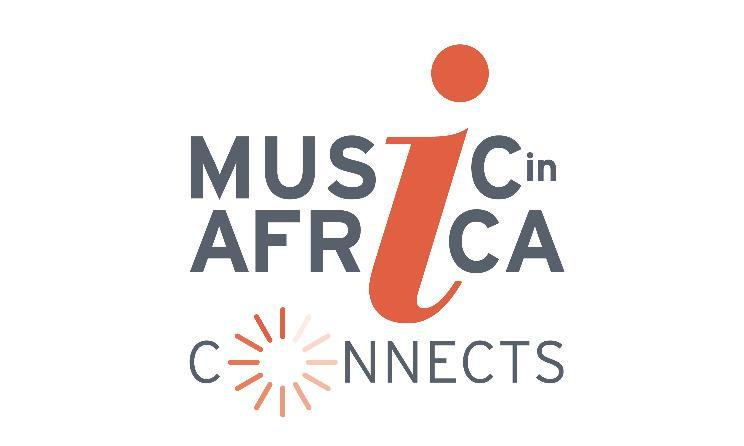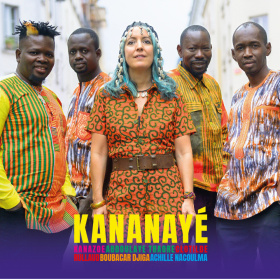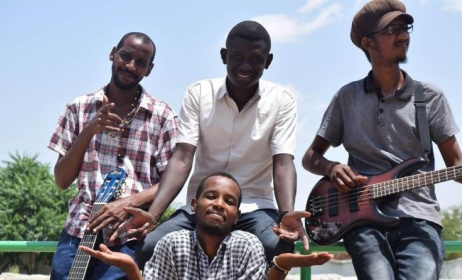Music censorship in Northern Nigeria
In Northern Nigeria, music has long been used as a tool for social criticism: a powerful means of speaking out against tyranny, corruption and oppression. However, artists who attempt to use their music to convey socio-political messages often find themselves the victims of censorship and other forms of official reprimand. This article provides an overview of censorship in Northern Nigerian music.
 Rapper ClassiQ was criticised for holding hands with an actress in one of his music videos. Photo: Facebook
Rapper ClassiQ was criticised for holding hands with an actress in one of his music videos. Photo: Facebook
History of censorship in Northern Nigeria
Northern Nigeria is a multi-ethnic and multi-religious region, with a rich musical tradition that is deeply enshrined in the daily lives of its people. The micro-communities within this region are, moreover, governed by different cultural, religious and ethical codes. Therefore, music censorship in Northern Nigeria is often based on political, religious or cultural premises[1].
The most radical form of censorship in the region has stemmed from the introduction, in 1999, of Islamic sharia law in states with dominant Muslim populations, such as Zamfara, Kano, Sokoto, Katsina, Bauchi, Borno, Jigawa, Kebbi and Yobe. In these states, sharia is used to outlaw sensual and vulgar musical content. The Kano State Censorship Board (KSCB), arguably the most visible censorship body in Northern Nigeria, was established in 2001. Since its founding, it has faced allegations of intimidation and arrests within Kano, prompting an exodus of artists to neighbouring states perceived to be more liberal and friendlier to their craft[2].
In 2010, the KSCB responded through its director-general, Abubakar Rabo Abdulkareem, arguing that any media production would be tolerated as long as it is mindful of the socio-cultural values of the people it depicts[3].
According to the board, under this definition acts that constitute blasphemy and are punishable by law include close dancing between a woman and a man; women appearing in tight trousers or short skirts or any clothing that is figure-revealing; women appearing with their hair uncovered (unless there is an acceptable reason for this); insulting behaviour or lack of respect towards elders; insulting or demeaning behaviour towards another religion or culture; using children for scenes that are not appropriate for them; using rituals or magic in films in inappropriate ways; showing nudity, sex or vulgar actions; ridiculing a specific person or group of people; and, finally, contradicting Islamic law in any other fashion[4].
Forms of censorship
Censoring often occurs when individuals or groups feel aggrieved by the musical or visual output of an artist and report the artist to the relevant authorities. Musician and filmmaker Adam A Zango was one of the first artists in Northern Nigeria to be arrested by the KSCB following the release of his music video 'Bahaushiya' (Hausa Girl). Sharia was invoked during his arrest. Following his release from prison, Zango migrated from Kano and continued to record music in the neighbouring state of Kaduna[5].
Another example is the case of the late comedian Alhaji Rabilu Musa Ibrahim (popularly known as Dan Ibro), whose music video 'Mamar-Mamar' was brought before the censorship board by Kano residents who complained about its suggestive content. He was apprehended and jailed for several months.
The detention of the artist Baba Iyali in January 2016[6] and the abduction, beating and subsequent arrest of musician Ado Daukaka in June 2016[7] both involved perceived criticism or insulting of influential politicians. Aminu Abubakar and Murjanatu Dosa have also been sent to prison for criticising the government through the use of humour and mockery in their songs[8].
Furthermore, there are instances of censorship that take the form of banditry and theft. This fate is said to have befallen musician Dauda Nakahuta (Rarara), who was kidnapped by assailants after having previously been arrested for releasing a protest song against former President Goodluck Jonathan in 2014[9].
This aspect of politically motivated censorship can also be seen in the case of Yola-based singer Ado Halliru Daukaka, who was arrested in June 2016 for singing about government corruption and incompetence in Adamawa State. Similarly, Sadiq Zazzabi (Sadiq Usman Saleh) was detained in March 2017, allegedly for releasing a song before receiving approval from the KSCB. Although he plead guilty to the charges, which also included indecent dressing, Zazzabi claimed the judgement was “preordained” because he had previously produced a song in support of Rabiu Kwankwaso, a former governor of Kano State who was at the time engaged in a power tussle with the incumbent, Abdullahi Ganduje[10].
Impact of censorship in Northern Nigeria
Given this strict climate of censorship, musicians in Northern Nigeria have to take cognisance of the cultural sensibility of their audience and the laws and regulations guiding music and entertainment in the region. This practice of making concessions was demonstrated when rapper ClassiQ apologised to his fans in Northern Nigeria for holding hands with actress Rahama Sadau in the 2016 music video for his song 'I Love You'[11]. Many argue that ClassiQ's apology was influenced by the knowledge that his commercial success depends on being accepted by conversative Northern Nigerian audiences. Sadau, who played his partner in the video, was subsequently banned from the Kannywood film industry[12].
To overcome these challenges, most artists adopt the use of ambiguous images and symbols to talk indirectly about issues that are topical or controversial. A great example is Rabiu Musa's 'Ibro Makaho', a song that uses the metaphor of a vehicle being driven by a blind man carrying blind passengers to comment on the crisis of leadership in the region.
Resources and citations:
[1] http://www.worldpress.org/Africa/819.cfm
[2] https://www.vanguardngr.com/2010/05/our-grouse-with-kannywood-dg-kano-ce...
[3] ibid.
[4] https://www.researchgate.net/publication/268813777_Mission_and_Vision_of...
[5] http://www.africafiles.org/printableversion.asp?id=19876
[6] https://freemuse.org/news/nigeria-singer-detained-for-critical-song-of-p...
[7] https://freemuse.org/news/nigeria-musician-kidnapped-found-later-detaine...
[8] https://freemuse.org/news/censorship-nigeria-musical-free-expression-sha...
[9] https://www.dailytrust.com.ng/news/general/apc-famous-singer-rarara-kidnapped-released-in-kano/141787.html
[10] https://freemuse.org/resources/art-under-threat-in-2016/nigeria/
[11] https://www.premiumtimesng.com/entertainment/music/212514-classiq-apolog...
[12] https://www.independent.co.uk/news/world/africa/nigerian-actress-rahama-...
This article is part of the Music In Africa Connects project, a multi-faceted development initiative aiming to support the music sectors of African countries affected by conflict. To find out more about Music In Africa Connects, click here.
Disclaimer: Music In Africa's Overviews provide broad information about the music scenes in African countries. Music In Africa understands that the information in some of these texts could become outdated with time. If you would like to provide updated information or corrections to any of our Overview texts, please contact us at info@musicinafrica.net.
Editing by David Cornwell


























Commentaires
s'identifier or register to post comments